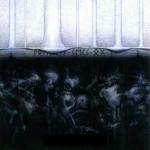'Putin's Hall of Mirrors
The Russian president sees the world through the lens of maskirovka and provokatsiia.
Putin likes to associate today's Russian Federation with the old Russian Empire[...] the most repressive state of its era, with the most refined state police: the Okhrana. Russian revolutionaries, [...] who would establish the Soviet state, were educated by its methods. It did not simply hunt them down; it ensnared them, often without their knowledge, in a complicated dance of incriminating their comrades. It specialized in provocations. It knew how to make its enemies do the work for it.
Intelligence work means finding things out. Counterintelligence means making this difficult for others. At the far fringe of counterintelligence are operations designed not just to confuse the world but to change it: in Russian, maskirovka or provokatsiia. [...]
[...] the habit of maskirovka, or deception, came with terrible costs. If all one does is provoke, then all one sees is provocation. [...]
[...] Thanks to social media, Putin's invasion of Ukraine in 2014 was a triumph of postmodern provocation. If you were on the left, you heard that Ukraine was Nazi; if you were on the right, you were told that it was gay; if you were on the far right, you were told that it was Jewish. Such stories prevented people in the West from seeing the simple truth: one country had invaded another, taken its territory, and killed and displaced its civilians. Encouraged by success in Ukraine, Russia applied the same techniques to the Brexit referendum and an American presidential election, with similar results. [...]
The 2014 invasion was also rich in traditional provocations. [...] Putin let slip the kind of warfare that was planned: "And let's see those [Ukrainian] troops try to shoot their own people, with us behind them—not in front, but behind. Let them just try to shoot at women and children!" [...] Having provoked the Ukrainian army to shell a Ukrainian city, Russia recruited more irregulars from among those who suffered, and blamed everything on the Ukrainians. Something very similar can be expected now.
Provocation can become a necessary condition to action. Putin has massed Russian forces at the Ukrainian border, but he has no story (yet) for the Russian people as to why he would invade. Russians seem not to believe that an invasion is in the offing, and there is little sign that many of them would support such a thing if they believed that their side was the aggressor. [...] If Putin really does want to invade, he will have to deliver some effective illusion before doing so, one that allows Russians to think that something besides a war of aggression is going on.
[...] He may be lost in his personal myth of Russian-Ukrainian unity, and truly imagine that he will gain immortal glory by invading Russia's neighbor on the logic that it is Russia's brother[...] One can imagine such crashing naivete as a fitting companion of a career of provocation: When you believe nothing else, what remains is childish fantasy.'
https://www.theatlan...Vfs94P4mk0GxkIs

 Help
Help




















